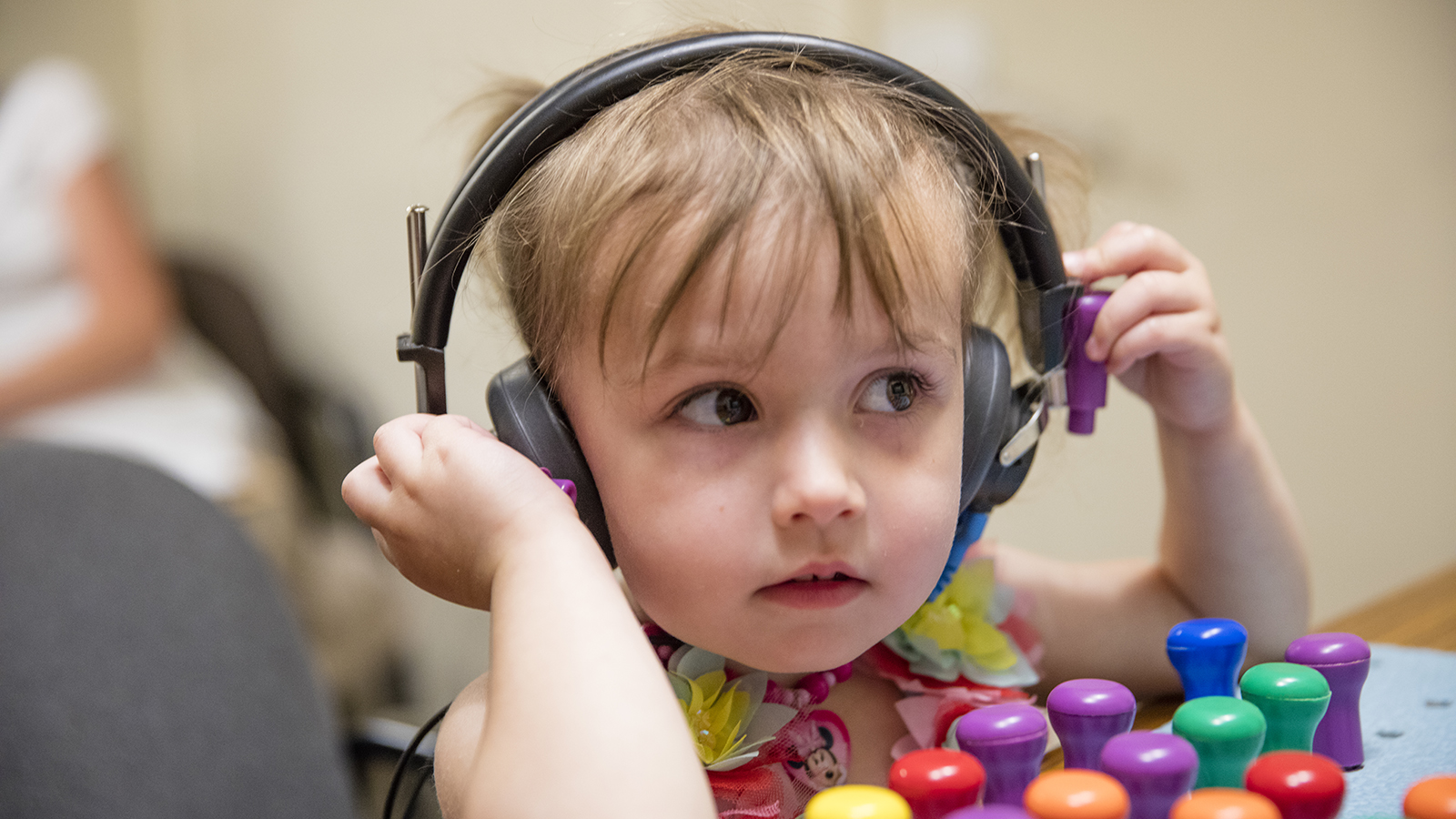
Audiology at Nebraska: Helping the world hear, one individual at a time
03 Mar 2017 By Kelcey Buck
In celebration of World Hearing Day March 3, the Department of Special Education and Communication Disorders highlights the many ways faculty and students in the University of Nebraska-Lincoln’s audiology program contribute to improving hearing for people throughout Nebraska and beyond.
More than a thousand individuals walked out the doors of the Barkley Speech Language and Hearing Clinic in 2016 able to hear the sounds of the world better than when they entered the building. Clinical services have been provided at the University of Nebraska-Lincoln since the late 1940s, and for the last 41 years, patients have visited the Barkley Memorial Center on East Campus for those services.
The 1,043 clients receiving hearing services at the Barkley Clinic last year were fit with 333 hearing aids, but that number represents only a portion of the people who are helped by audiologists and students in Nebraska’s Doctor of Audiology (Au.D.) program each year. In addition to the on-campus clinic services, second-, third-, and fourth-year audiology students provided more than 15,000 hours of services at off-campus externships in Nebraska and throughout the United States.
Two faculty members and four students also made the audiology program’s first international service trip in 2016. They spent a week in Nicaragua in July, helping a country that has just one known full-time audiologist to serve its more than 6 million residents. In those seven days, the group from Nebraska visited three communities, seeing 140 patients and dispensing 117 hearing aids. They also trained two local individuals to provide hearing aid maintenance.
But that initial trip was just the beginning. In January, the two faculty – associate professor of practice Stacie Ray and assistant professor of practice Hannah Ditmars – returned to Nicaragua. They saw 47 patients and provided six hearing aids, while also training two more individuals. This coming July, Ray and Ditmars will continue to add to the numbers of people impacted when they return to Nicaragua with another group of students for the second annual study abroad trip.
Yet all those numbers still fail to tell the whole story. The Barkley Clinic also has the distinction of being the home to all three hearing aid banks in the state of Nebraska – HearU Nebraska, Lions Hearing Aid Bank and Sertoma Hearing Aid Bank. In the past five years, the three hearing aid banks distributed 1,735 hearing aids to 987 individuals. While the hearing aid banks are based out of the Barkley Clinic, the services associated with those banks are provided by audiologists throughout the state.
HearU Nebraska is a non-profit organization that was established in 2008 to provide hearing aids for children birth to 18 years old whose insurance does not cover the cost of hearing aids. Last year, HearU Nebraska provided 57 children with 105 hearing aids.
The Lions Hearing Aid Bank was run through the University of Nebraska Medical Center before moving to the Barkley Clinic in August 2012. The Nebraska Lions Foundation provides the funding for the hearing aid bank, which provides two hearing aids for individuals ages 19-64 who qualify financially. In 2016, 48 individuals received 87 hearing aids through the Lions Hearing Aid Bank.
The Sertoma Hearing Aid Bank, which was established in 1981, operates similarly to the Lions Hearing Aid Bank, but provides one hearing aid for individuals ages 65 and older. A collaborative effort between Gateway Sertoma, the Barkley Memorial Center and the Nebraska Commission for the Deaf and Hard of Hearing, this bank provided 155 individuals with 284 hearing aids in 2016.
To learn more about Nebraska’s audiology program, click here.
To learn more about services offered at the Barkley Speech Language and Hearing Clinic, click here.
To learn more about the three Nebraska Hearing Aid Banks, click here.
Special Education and Communication Disorders